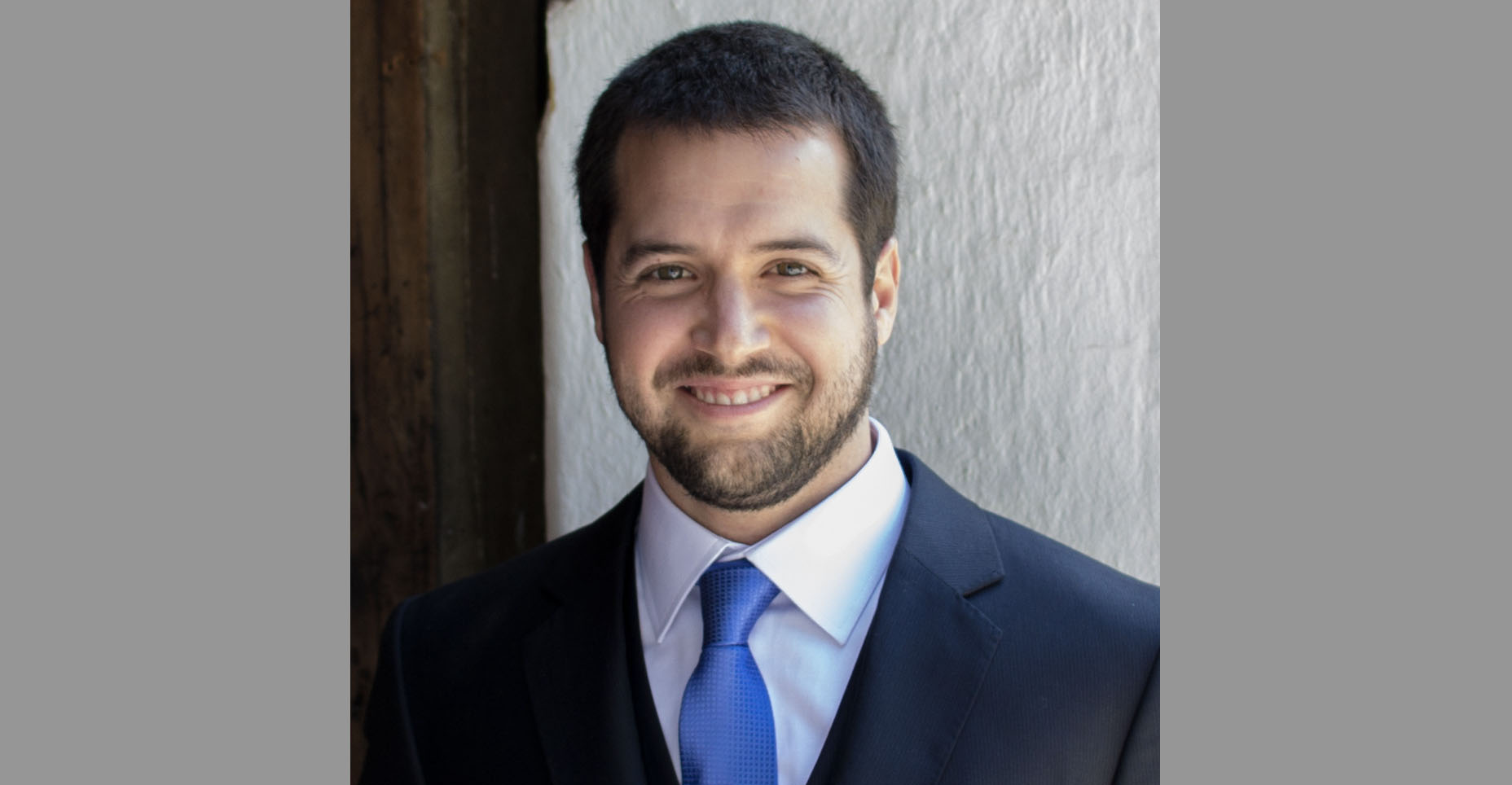RHB Student is Having a Winning Semester
Apr 22, 2025
Santiago Collects Grant, as well as CHS Graduate Award for Research Creativity

By Ryan Clark
CHS Communications Director
It’s been a very special couple of months for Felipe Gonzalez Seguel, PT, MSc.
The 37-year-old Rehabilitation and Health Sciences PhD student — originally from Santiago, Chile — was honored at the 2025 CHS Student Awards ceremony for winning the Robinson Graduate Award for Research Creativity.
Yet he also published a review in Current Opinion in Clinical Nutrition and Metabolic Care, written for his RHB 788 Independent Study class. And he received the Doctoral Student Pilot Grant RFA from the Center for Health Equity Transformation for his work, entitled: “Are there disparities in delivery of rehabilitation care for patients with critical illness who only speak Spanish?”
“This grant is important so that Felipe will be able to conduct a study that will contribute to his dissertation research and deals with a topic that is critically important for the well-being of survivors of an ICU stay,” said Esther Dupont-Versteegden, PhD and director of the Rehabilitation and Health Sciences PhD Program.
In his second year in the RHB program (with the plan to complete his qualifying exam and progress to PhD candidacy this spring), Felipe moved here from Chile to earn his degree — and his wife and 3-year-old daughter came along for the ride.
He’s been busy ever since. Despite the transition, he has been incredibly productive with already five manuscripts in print or press, co-author on three book chapters, and invited to serve on an international committee to develop clinical practice guidelines for rehabilitation in ICU.
Regarding the pilot grant, his professors were especially delighted.
“I am incredibly proud for Felipe to be selected for the CHET doctoral student pilot grant,” said Kirby Mayer, DPT, PhD and Associate Professor in the Rehabilitation Sciences PhD Program. “Felipe is a clinician-scientist who has a proclivity for meaningful research to improve outcomes for ICU survivors. The current program will significantly enhance our understanding of disparities in critical care related to language preferences. We are beyond excited for Felipe’s current and future research, which I know will have a substantial impact on our patients and the field of critical care.”
We were lucky that Felipe could take a few moments out of his busy schedule to talk with us, where we asked him why he chose UK, what winning his first grant means to him, and what the future looks like.
Here’s 5 questions with … Felipe Gonzalez Seguel, PT, MSc:
WHY DID YOU COME TO UK?
I moved to the United States in 2023 to start my graduate studies as a predoctoral trainee in the Rehabilitation and Health Sciences PhD Program to acquire new skills to support the research and science of my future career. Importantly, I was also motivated by the attractive team of researchers and clinicians at the University of Kentucky who lead NIH grants related to critical illness and the ICU Recovery Clinic of the University of Kentucky.
WHY DID YOU CHOOSE RHB?
After more than 10 years working as a clinician in the ICU and completing my Master program in Physical Therapy and Rehabilitation in Chile, I identified my interest in producing research and decided to look for a relevant doctoral program abroad.
HOW DID IT FEEL TO WIN THE CHET PILOT AWARD AND WHAT DIFFERENCE WILL IT MAKE?
I feel a great responsibility as a doctoral student and Graduate Research Assistant. I also feel responsibility for Hispanic-speakers who survive critical illness and will participate in this study. As a future researcher, this first grant, although pilot, will serve as a first step to enter the “world of grants,” which is still new/unknown to me. As a Spanish-speaker, this study will particularly help me identify and address (in part) the gaps in the rehabilitation of Spanish-speaking survivors of critical illness in the USA.
WHAT DOES THE FUTURE LOOK LIKE FOR YOU? WHAT DO YOU WANT TO DO?
As an international PhD student, I still have uncertainties about the future, but I am confident that I have great support from my advisor and advisory committee. Anyways, in my future career I would like to have the opportunity to be awarded grants to contribute scientifically in my field and start my research career.
HOW HAS BEING IN THE COLLEGE OF HEALTH SCIENCES HELPED YOU?
From the beginning, I have received support at all levels: Director of the RHB PhD program, faculty, advisor, administrative staff, and classmates at CHS.